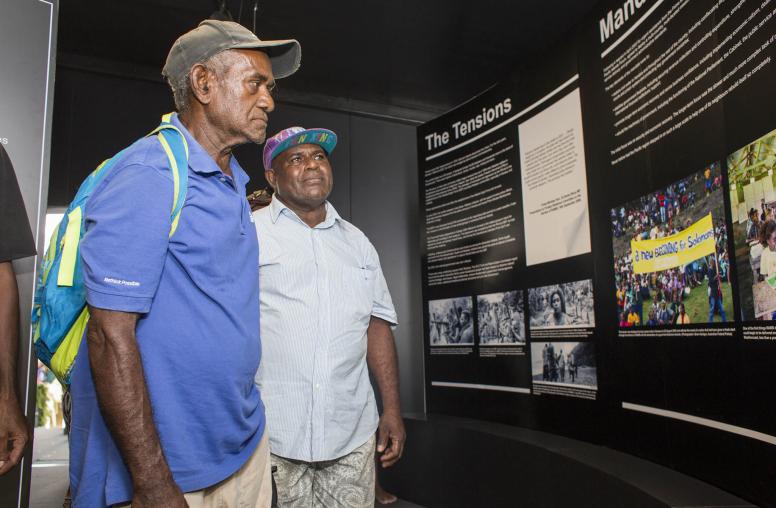Children and Transitional Justice
The U.S. Institute of Peace Jennings Randolph Fellowship Program and Center for Mediation and Conflict Resolution in partnership with the Washington Network on Children in Armed Conflict (WNCAC) will co-host a public event exploring what has been achieved by transitional justice mechanisms over the last few years in terms of promoting and protecting the rights of children affected by armed conflict and widespread violence, and discuss what else could be done.
 In contexts characterized by gross or systematic violations of fundamental human rights, children are always among the victims. They are victims of shootings, bombardment, landmines; they witness the killing and suffering of parents, siblings, family and friends. Children are displaced, lose their homes, and access to school. While children are victims alongside the rest of the civilian population, they often suffer more than others, because of their vulnerability: they are among the first victims of malnourishment and famine. In addition, girls and boys, because of their specific vulnerability, are also sometimes directly targeted for abduction, enslavement, illegal recruitment as child soldiers, rape and sexual violence. In these circumstances, often coercive, children such as child soldiers may also participate in atrocities.
In contexts characterized by gross or systematic violations of fundamental human rights, children are always among the victims. They are victims of shootings, bombardment, landmines; they witness the killing and suffering of parents, siblings, family and friends. Children are displaced, lose their homes, and access to school. While children are victims alongside the rest of the civilian population, they often suffer more than others, because of their vulnerability: they are among the first victims of malnourishment and famine. In addition, girls and boys, because of their specific vulnerability, are also sometimes directly targeted for abduction, enslavement, illegal recruitment as child soldiers, rape and sexual violence. In these circumstances, often coercive, children such as child soldiers may also participate in atrocities.
For all these reasons, children concerns and interests should be considered in the debates about the aftermath of war and the need for accountability to address systematic violations including war crimes, crimes against humanity, and genocide. Recently, some truth commissions, international courts and other accountability processes have documented how children have been forced to participate in hostilities, for instance in Liberia and the Democratic Republic of the Congo. Yet much more remains to be done: transitional justice, post-conflict justice, and rule of law efforts are not systematically addressing the needs of children, and often do not even consider them. This session will review what has been achieved by transitional justice mechanisms over the last few years in terms of promoting and protecting the rights of children affected by armed conflict and widespread violence, and discuss what else could be done.
Speakers
- Cecile Aptel, Presenter
Jennings Randolph Senior Fellow
U.S. Institute of Peace - Colette Rausch, Discussant
Director, Rule of Law Center of Innovation
U.S. Institute of Peace - Elizabeth "Lili" Cole, Discussant
Senior Program Officer Jennings Randolph Fellowship Program
U.S. Institute of Peace




